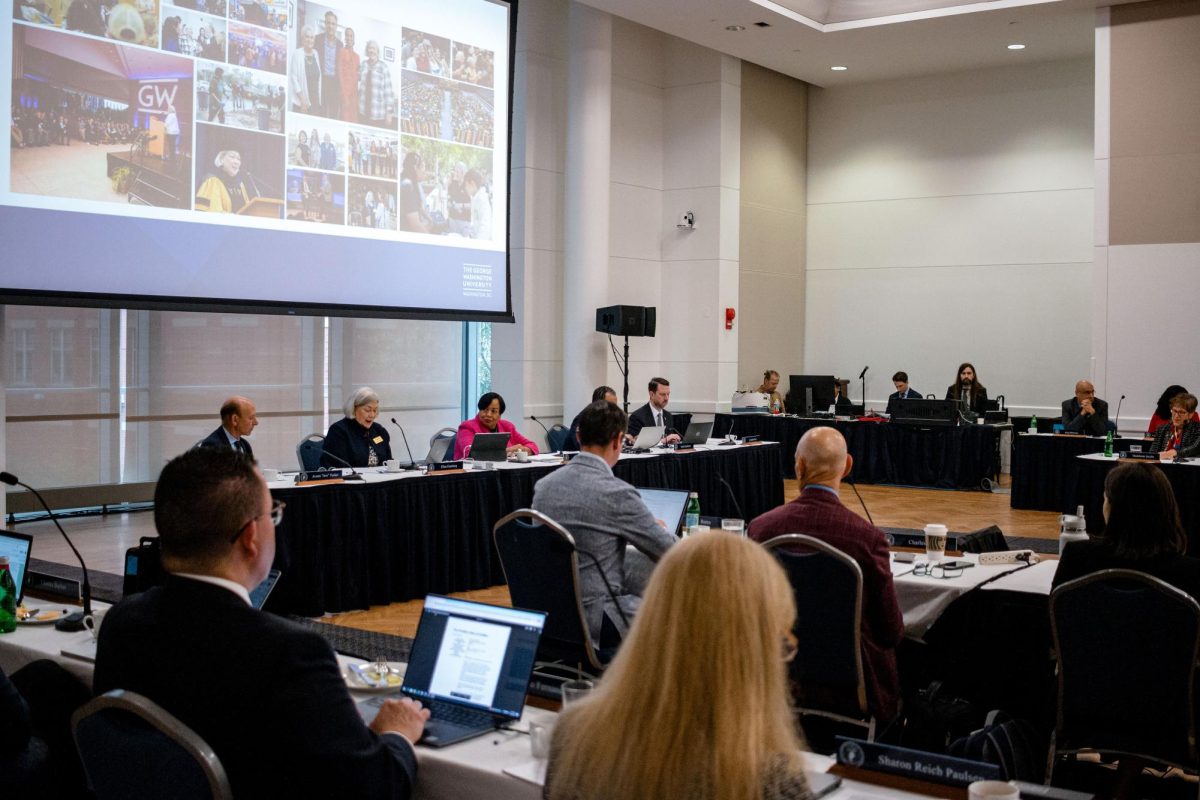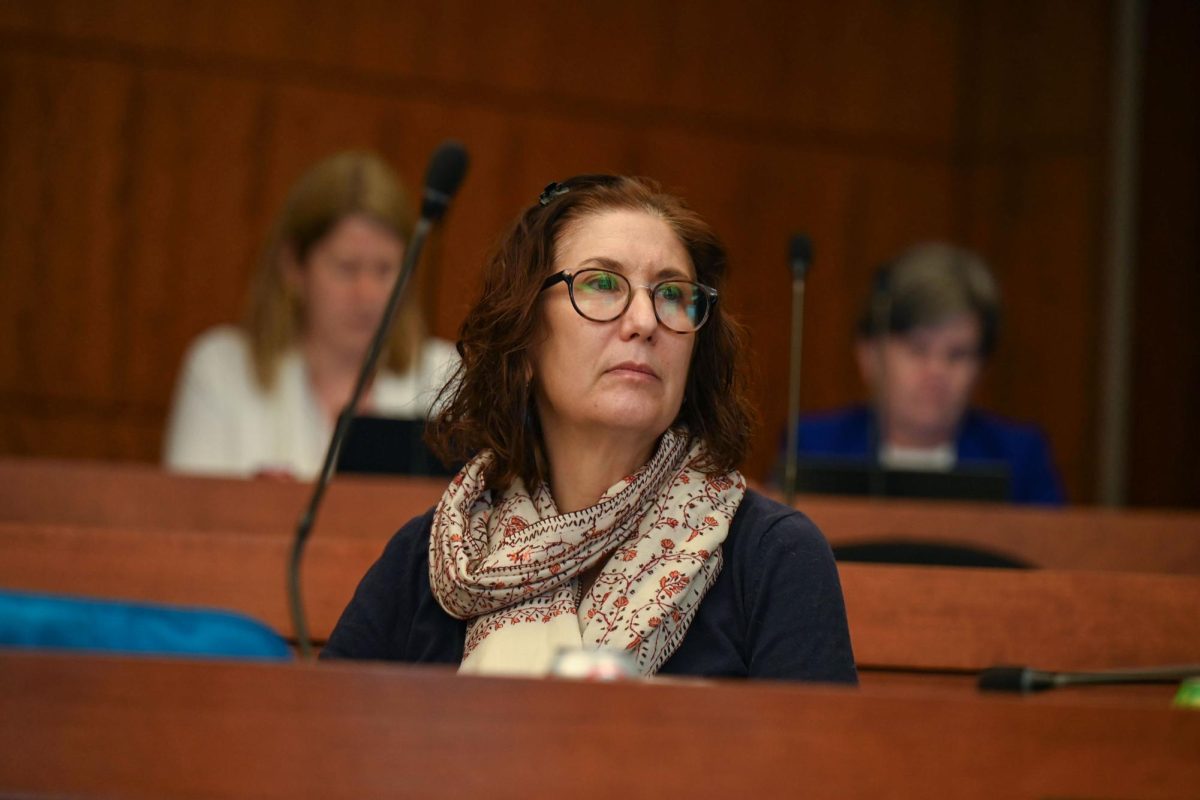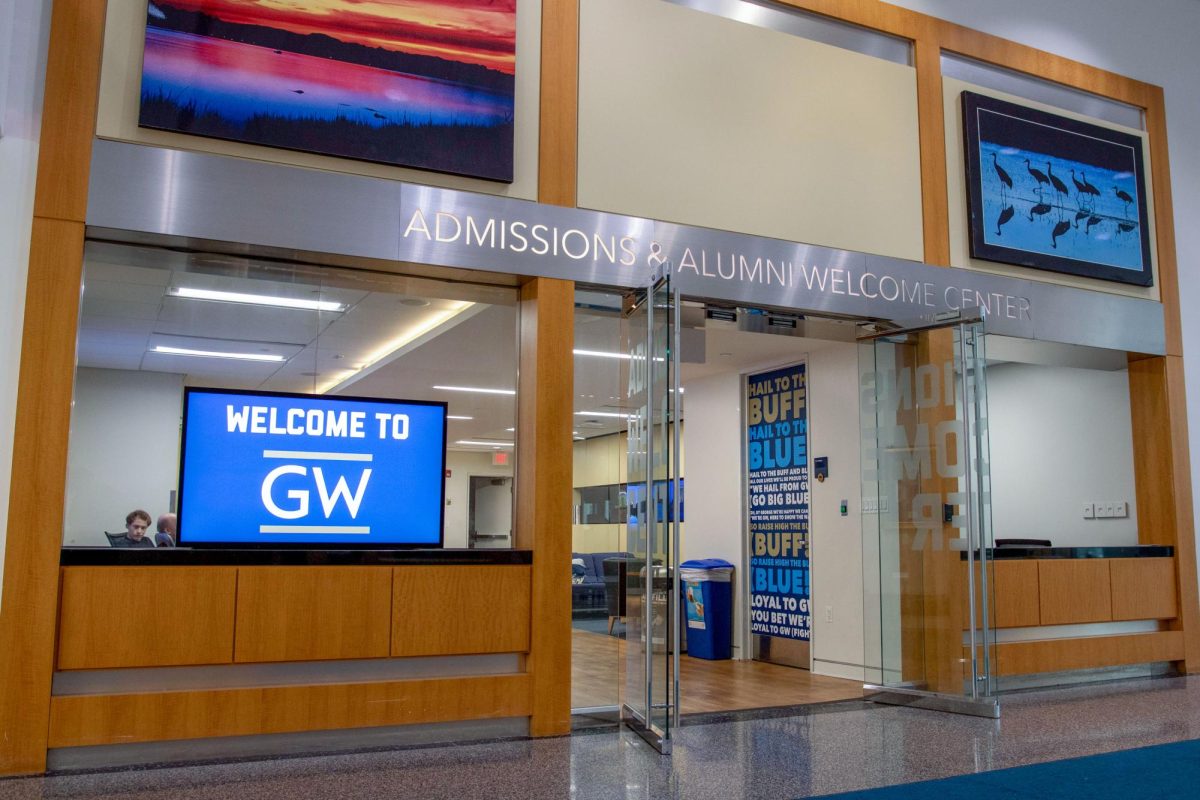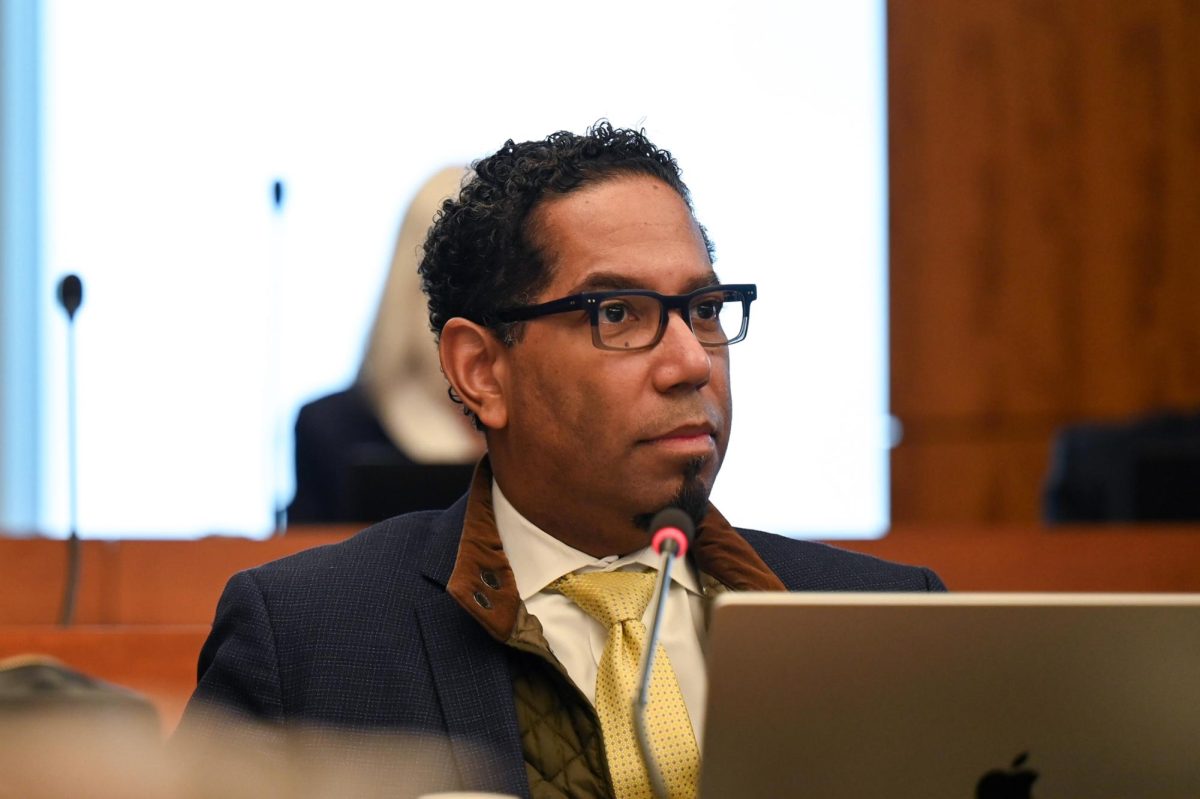Officials said the University’s endowment increased to $2.5 billion after a slight decline announced earlier this year.
Board Secretary Avram Tucker said at a Board of Trustees meeting Friday that the University’s endowment — a financial foundation used to fund professorships, scholarships and construction projects largely from donations — stands at $2.5 billion and stems from real estate and investments. In June 2022, at the beginning of GW’s Fiscal Year 2023, the University had a $2.34 billion endowment, which rose to $2.4 billion roughly halfway through the fiscal year in February.
Higher education finance experts in April 2022 said the endowment could continue to decline due to inflation, but officials said in February that they hoped to maintain the $2.4 billion endowment.
Tucker said the University’s consolidated financial statements with the Medical Faculty Associates, a group of physicians and faculty from the School of Medicine & Health Sciences and physicians at the GW Hospital, received a “clean” audit opinion, the highest level of opinion from accounting firms. He said despite financial struggles from the pandemic, GW’s finances and liquidity are “strong,” which he attributed to the work of Chief Financial Officer Bruno Fernandes and Associate Vice President and University Controller Neena Ali’s work to keep GW’s finances afloat.
“Despite the uncertainty in the markets, they are outperforming the benchmarks which is what we count on them to do,” Tucker said at the meeting.
Ilana Feldman, the chair of the Faculty Senate Executive Committee, said faculty wanted more training on shelter-in-place protocols after a man charged with homicide escaped from GW Hospital last month, triggering officials to issue a shelter-in-place order for four hours. Faculty said it was difficult to decide whether to have students stay in the classroom for the whole four hours due to unclear communication from officials.
“Faculty feel a particular responsibility, being in classrooms when something may happen,” Feldman said at the meeting.
She said the Physical Facilities Committee is establishing a subcommittee that will advise the GW Police Department on arming. She said the committee will seek to rename itself to the Physical Facilities and Safety Committee since it will take up a “broad range” of issues concerning campus safety.
Officials announced in April that GWPD will arm about 20 of 50 police officers with handguns.
Feldman said that the senate’s Executive Committee’s meetings with the Board’s Executive Committee have been “valuable” in promoting shared governance and will help influence strategic planning. Faculty senators said in May that the decision to arm GWPD without faculty input defies the University’s shared governance principles, which state that all faculty should play a role in “key decision making.”
“We are excited to one, work on that process, and work collaboratively,” Feldman said at the meeting.
During the meeting, Student Association President Arielle Geismar requested the Board change the title of the student governing body to the Student Government Association because the acronym “SA” is often used to refer to sexual assault. The SA Senate’s Governance and Nominations Committee, the full SA Senate and the Board must approve the name change before it takes effect.
Geismar said officials did not sufficiently inform students on how to proceed during the shelter-in-place last month, which left students turning to social media for updates on the escapee. She said she’d rather have officials dedicate resources toward “proper” emergency preparedness systems than arming GWPD.
“I fail to see how an armed GWPD would have made us safer on September 6,” Geismar said.
She said the SA started Instagram accounts focused on diversity, equity and inclusion to work toward objectives like exploring accessible housing for transgender students. She said the SA also created a spirit account to build up “hype” for varsity athletics and club sports.
She said the SA is “probing” the loss of access to Adobe Creative Cloud tools. She said students will not see an equal “return on their investment” to GW without project tools like Adobe Creative Cloud and asked trustees to reinvest in student projects.
“The underfunding of student projects is not only a disservice to student life and enjoyment, but it is a disservice to the public and private sectors in which our students will want to lead,” Geismar said.
Alumni Association President Maxwell Gocala-Nguyen said 3,100 guests participated in Alumni and Families Weekend last month, a slight increase from last year. He said more than 150 GW community members attended the first GW Together event in Philadelphia, one of 10 forums for alumni and donors to tell University President Ellen Granberg what they want to see in GW’s future.
Friday’s Board meeting was Granberg’s first as president.
Gocala-Nguyen said he aims to increase the amount of donors who contribute to annual giving. He said the Buff and Blue Fund Challenge, a fundraising campaign for athletics teams, has garnered $341,359 from 1,317 donors, surpassing the previous records of $207,814 and 1,173 donors.
Former Alumni Association President William Alexander said in February that officials would try to increase donations from “loyal” donors who have given to GW in the past for Giving Day instead of increasing the total amount of donors. Alexander said in October 2022 that the University’s donor base had shrunk while donations increased by more than $1 million in 2022.
“The Executive Committee is excited to get connected with our community in many meaningful, impactful ways,” Gocala-Nguyen said. “This year is going to be a busy but exciting year for not only GW but also the Alumni Association.”
Fiona Riley, Grace Chinowsky, Jerry Lai and Olivia Earley contributed reporting.








